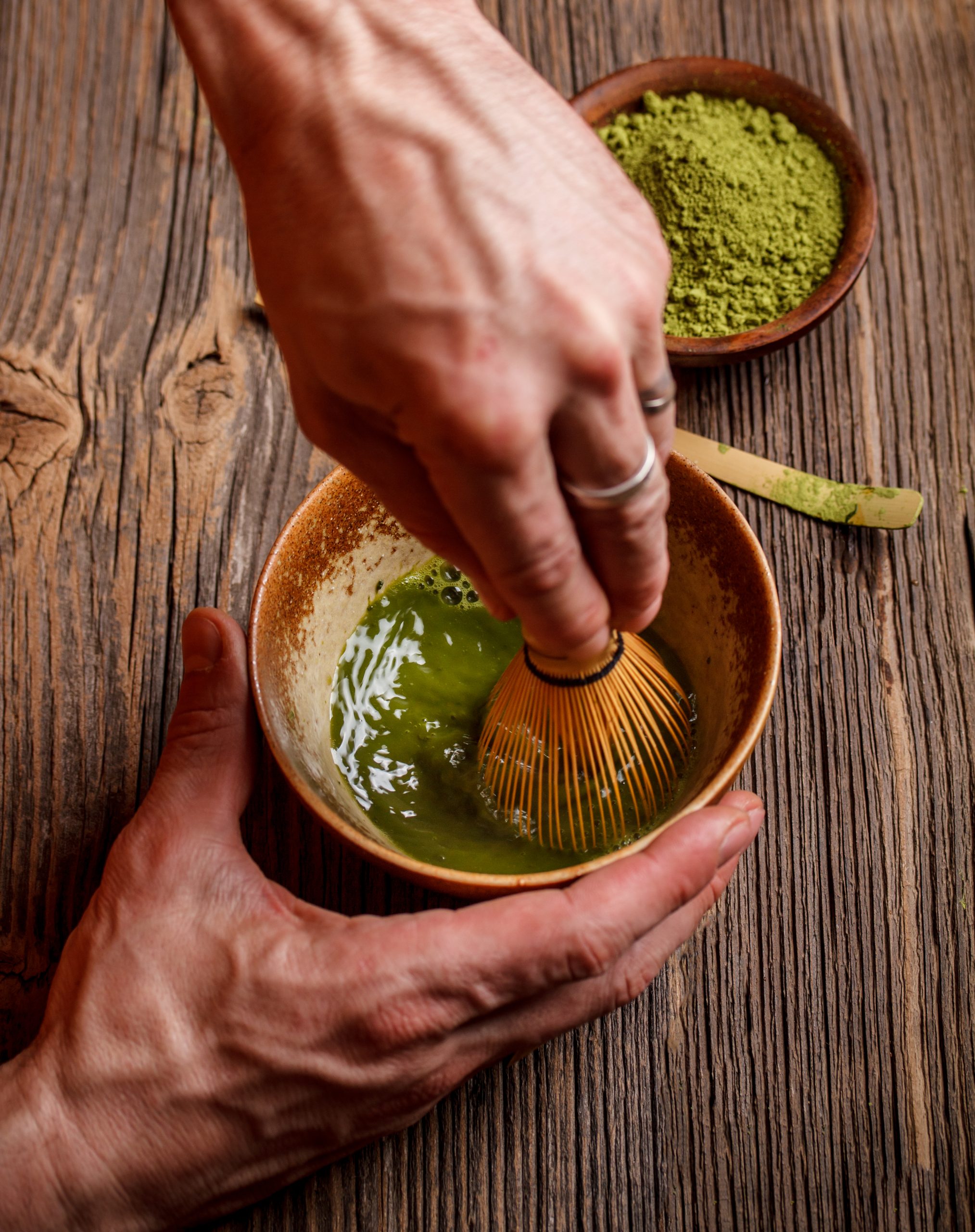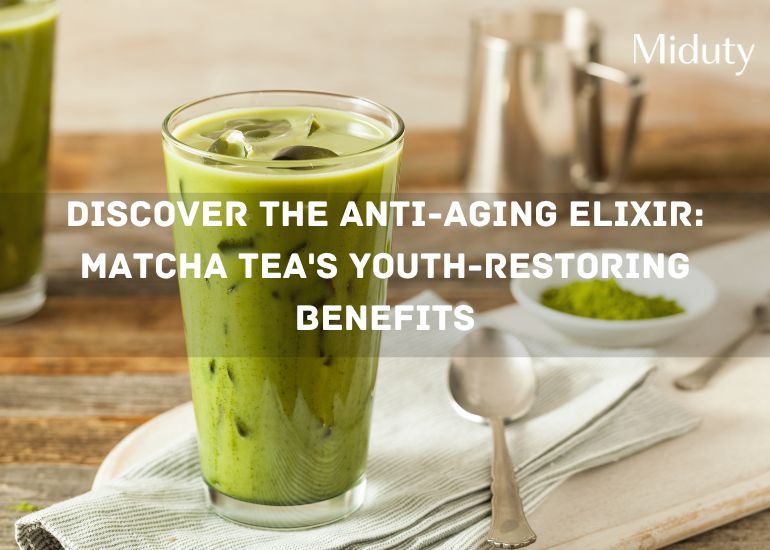How Much Caffeine in Matcha Green Tea: Unveiling the Energizing Secret
Matcha green tea contains approximately 35 mg of caffeine per half teaspoon. Matcha green tea typically contains around 70 mg of caffeine per serving, making it a lower-caffeine alternative to coffee.
Rich in antioxidants and nutrients, matcha green tea provides a gentle energy boost and a sense of calm focus. Its unique preparation involves consuming the entire powdered leaf, maximizing its health benefits. Whether enjoyed as a traditional tea or used in lattes and smoothies, matcha green tea offers a versatile and delicious way to incorporate a mindful caffeine boost into your routine.

Credit: www.walmart.com
What Is Matcha Green Tea?
Matcha green tea is a type of green tea ground into a fine powder. Its origins date back to ancient China and were later brought to Japan. The leaves are shaded to increase chlorophyll production, then carefully ground with traditional stone mills. This unique process gives matcha its vivid green color and distinct flavor. Caffeine content in matcha is higher than regular green tea due to the entire leaf being consumed. However, matcha also contains L-theanine, an amino acid that helps balance the caffeine, providing a sustained energy boost without the jitters. Overall, matcha’s caffeine content varies depending on the grade and serving size, generally ranging from 35 to 70 milligrams per 8-ounce serving.
The Health Benefits Of Matcha Green Tea
Matcha green tea is packed with antioxidants, including the powerful EGCg. This helps in boosting the metabolism and burning calories. Matcha has high caffeine content, which enhances concentration and increases alertness. Consuming matcha can improve mental clarity and aid in relaxation. The presence of L-Theanine in matcha promotes a state of calm alertness. Regular consumption of matcha green tea can aid in weight loss and increase energy levels. It is a healthier alternative to traditional caffeinated beverages.
Understanding Caffeine In Matcha Green Tea
Understanding Caffeine in Matcha Green Tea:
Matcha green tea, renowned for its numerous health benefits, contains caffeine that can provide an energy boost without causing jitters or crashes. Caffeine, a natural stimulant, affects the body in various ways. Firstly, it stimulates the central nervous system, enhancing alertness and reducing fatigue. Secondly, it increases dopamine production, regulating mood and boosting focus. Thirdly, caffeine accelerates metabolism and aids in fat burning during physical activity. Despite its positive effects, it’s crucial to be aware of the caffeine content in matcha green tea compared to other beverages. On average, a cup of matcha green tea contains around 70mg of caffeine, which is less than a cup of coffee but more than a cup of black tea. By consuming matcha green tea mindfully, you can enjoy its health benefits while being aware of its caffeine content.

Credit: truematcha.co.za
The Science Behind Matcha Green Tea’s Energizing Effect
The energizing effect of matcha green tea can be attributed to its caffeine content. Matcha contains a moderate amount of caffeine, which stimulates the central nervous system and enhances alertness. However, unlike regular green tea, matcha also contains other compounds like L-theanine, amino acids, and antioxidants.
When consumed together, caffeine and these compounds create a synergistic effect. This combination promotes a sense of calm and focused energy, preventing the jitters or crashes often associated with caffeine intake. The high levels of L-theanine in matcha green tea help to counterbalance the stimulating effects of caffeine, resulting in a sustained and mild alertness without the usual side effects.
Studies have shown that this unique combination of caffeine and other compounds can also improve cognitive function. Matcha green tea has been found to enhance attention, memory, and reaction time, making it a popular choice for those seeking a natural way to boost brain performance.
In summary, matcha green tea’s energizing effect can be attributed to the interaction of caffeine and other compounds, which work together to promote alertness and cognitive function.
How To Incorporate Matcha Green Tea Into Your Daily Routine
Matcha green tea is a popular beverage known for its rich flavor and numerous health benefits. Incorporating matcha into your daily routine is a great way to improve your overall well-being. But with so many options available, how do you choose the right matcha powder? Look for high-quality, organic options that are sourced from Japan. These will ensure that you are getting the best quality and flavor. There are various ways you can prepare and consume matcha green tea. You can try the traditional method of whisking the matcha powder with hot water or explore other recipes such as matcha lattes, smoothies, or even baking with matcha. Whichever method you choose, remember to savor the taste and enjoy the benefits of this amazing superfood.

Credit: miduty.in
Frequently Asked Questions Of How Much Caffeine In Matcha Green Tea
How Much Caffeine Is In Matcha Green Tea?
Matcha Green Tea contains around 30 milligrams of caffeine per gram, which is about half the amount found in a cup of coffee. However, the actual caffeine content may vary depending on the brand and preparation method.
Is Matcha Green Tea Better Than Coffee For An Energy Boost?
While both Matcha Green Tea and coffee contain caffeine, Matcha provides a more sustained energy boost without the jitters or caffeine crash associated with coffee. Matcha also contains L-Theanine, which promotes alertness and relaxation without causing drowsiness.
Can I Drink Matcha Green Tea Before Bed?
It is generally not recommended to consume Matcha Green Tea before bed due to its caffeine content. However, if you have a higher tolerance to caffeine, drinking Matcha Green Tea in the evening may not significantly affect your sleep. Experiment and see what works for you.
Conclusion
To sum up, matcha green tea is a popular beverage boasting various health benefits. With approximately 30-35mg of caffeine per 8-ounce serving, it provides a milder and more sustained energy boost compared to coffee. In addition, matcha contains antioxidants and L-theanine, which can enhance focus and relaxation.
Incorporating matcha into your daily routine can be a healthy alternative to traditional caffeinated beverages. So, whether you’re seeking a gentle pick-me-up or a moment of tranquility, matcha green tea is a delightful choice.



